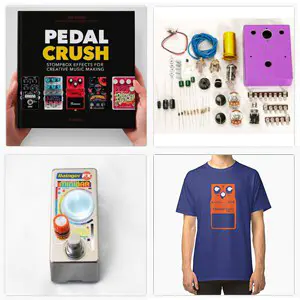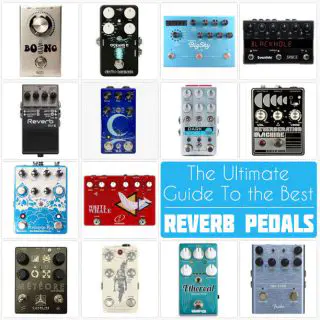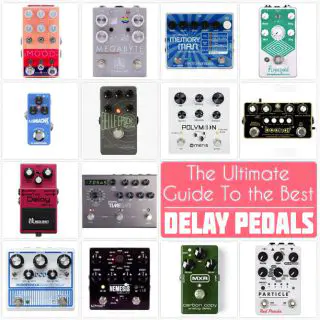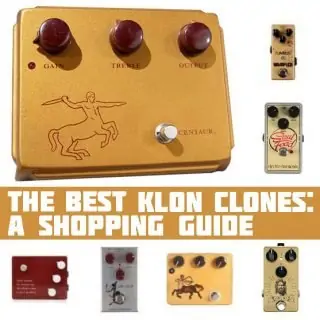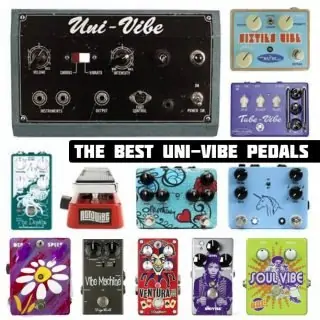| EULA’s Gear : Tascam 424 | ||
After releasing a steady run of EPs throughout the last couple years, EULA decided to go full-length and self-released Maurice Narcisse in 2011. It was on many “Best of 2011” album lists. Opening up for Mission of Burma at Music Hall of Williamsburg in February 2012 was another highlight for the band. At the time of this interview, the band was excited about doing another EP. We caught up with Alyse to see what she had to say about the band’s recording process.
How much of your recording is done at home versus in the studio?
I [Alyse, Lead singer/guitarist of EULA) do all of my demos at home. I basically record demos to show to my band, on the quick and cheap, then we re-work the songs to make them lush EULA landscapes.
What are the pieces of equipment that you find particularly inspiring when recording at home?
I am obsessed with my 4-track cassette recorder . It’s a Tascam Portastudio 424 piped into a Lexicon Lambda. It’s like a warm, fuzzy blanket that’s been with you since childhood. I’ve recorded all of my demos since I was a teenager on that thing. Hasn’t given me any problems either. It’s easy to use and records rather well. I also have a Mac of course. For recording software, sometimes I’ll use Cubase or Logic, but recently I’ve been using Garageband.
If you use a studio, what do you record there and what do you record by yourself and why?
We record all “releasable” material at a studio. I like to take the recording pressure off of me and focus on the performance. It’s luxurious to have someone else working the knobs and getting the correct levels, etc. However, I always brief my engineers beforehand that I am very hands-on in the control room, lots of ideas and visions for the correct sounds I want, and it’s usually not a problem at all.
What one piece of hardware/software would you most like to add to your recording setup (cost not an issue)? Why?
I do wish that I had more tracks to record on, so I would say an 8-track would be very sweet.
Do you expect your next record to be self-produced, or would you like to work with a producer? If it’s the latter, who would you most like to produce your band, and why?
The next time we hit the studio it will be to record an EP. We will be producing it. I feel that the three of us in EULA have an immense amount of creativity when it comes to sounds and mood we want to convey, so I’m pretty confident in our producing abilities. However, we’d love to work with someone like David Byrne or Fred Schneider to produce our next full-length. That’d be incredible.

I am all about analog when recording. I am not a gear head, so my go-to pedals are minimal but they mean very much to me – my Boss BD-2 Blues Driver for distortion, and my Boss DD-3 Digital Delay for effect.
Do you have a particular recording style that you aim for? What techniques do you employ to recreate it?
When I listen to a rock record, I want to feel like the band is in the same room as me. I want the recording to capture the energy of the music. This is what we strive for as a post-punk-noise-rock band – when you listen to our recordings, I want it to feel like we are playing next to you in the living room. It’s live, its kinetic, its delightful. I prefer recording all instruments in one room, all at once, more live than sectioned-off, just because it feels more organic and natural. I am not against overdubbing, but I like to keep it to a minimum. As for vocals, I prefer singing out of a PA (and micing the PA), it gives a live & natural effect.
Who determines the direction and style of your recordings?
The three of us in EULA determine everything – we are pretty democratic in that sense. Sometimes I turn into Tyrant mode when we are working on a particular song of mine, but I’m always nice and considerate about it. However, when it comes down to it – I will fight til death to get my point/sound across.
Is there a person outside the band that’s been important in perfecting your recorded or live sound?
We recorded our debut LP Maurice Narcisse with William Readey and Matthew Thomas of Fuzzy Rainbow Studios in New Haven, CT. The two of them took us under their recording wing and pushed our sonic landscapes into uncharted territory – it felt good to think out of the box on some tracks. There are a few electronic beat-driven tracks on Maurice (which we are not used to doing!), so the recordings were more slick and produced. However, the title track “Dirty Hands”, as well as “Maurice Narcisse” and “Texas Stampede” were recorded much more dirtily and raw, exactly what we wanted. Then the last track, “Hollow Cave”, was done in one intimate take because it is a very intimate song. Shout out to those boys, they’re ridiculously talented and a joy to work with. As far as live sound goes, that is all EULA. We’ve perfected it over the years and take pride in it.
What other artists would you say have had the biggest influence in your approach to recording? Why?
I am a huuuuge PJ Harvey fan so her work with Steve Albini is at the top of my list. The way he captured her raw power on Rid of Me was just incredible. I always strive for rawness and capturing that live kinetic energy in our music. But then there is the opposite side of the spectrum, someone like Nigel Godrich or Brian Deck that can make beautiful lush sounding recordings.
Would you say that your live show informs your recording process or that your recording process informs your live show? Both? Neither?
Live performance for me is first and foremost. Writing a song in your bedroom then playing it out LIVE is the most beautiful and rewarding feeling. Next is capturing that live sound onto a recording for people to listen to – so yes the live show absolutely informs the recording process.
Is there a piece of equipment that you find particularly useful on stage?
My Fender DeVille guitar amp paired with my BOSS blues driver and digital delay pedals have become my “sound”. I always prefer a heady tube amp because it pairs so nicely with my spastic guitar style of playing. Like peanut butter and raspberry jelly.
With bands doing more of everything themselves these days (recording, performing, self-promoting, etc.) and the evermore multimedia nature of the world, how much effort do you put into the visual component of your band – fashion, styling, photography, graphic/web design, etc.? Do you do these things yourself or is there someone that the band works with?
We do everything ourselves. From the records we produce to the clothes I wear onstage to the website and record design – all of if is EULA. However, we love to collaborate with other artists. We have some really great photographer and videographer friends that we’ve done photo and video work with, and its an amazing experience to work with these great minds toward a common goal of artistic deliciousness.
What do you find to be the most challenging aspects of the recording process? On the flipside, what aspects are the most rewarding?
The most challenging aspect of recording is doing the multiple takes – if we don’t capture something on the first take, I have a hard time doing take after take after take… it begins to sound forced and unnatural. So, we step away for an hour, work on something else, then try again. The most rewarding aspect is capturing that beautiful sound that you are striving for. For a mood/sound to originate in your brain then become concrete on tape . . . it’s amazing.


















